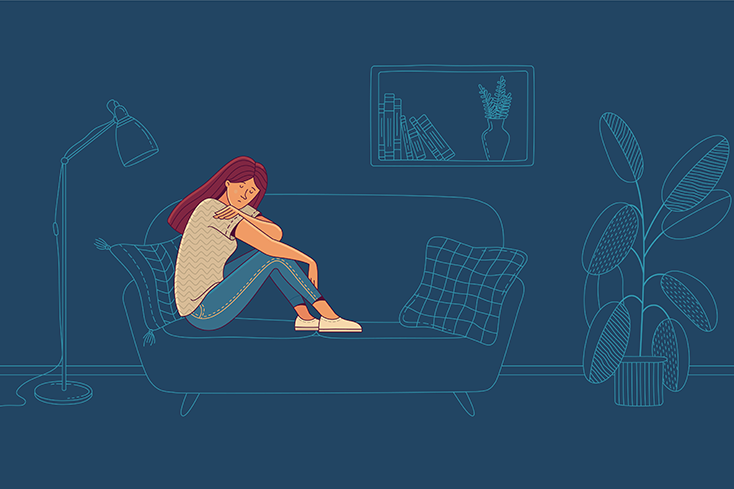A Quick Guide
Agoraphobia is an anxiety disorder characterized by fear of certain situations when there are people involved. These situations become very anxiety-inducing and then the person tries to avoid these situations. According to the National Institute of Mental Health, approximately 1.3% of adolescents and adults get diagnosed with agoraphobia at some point in their lives. Furthermore, females are twice more likely to experience it. The treatment of agoraphobia includes medication, psychotherapy, and some lifestyle changes.
Symptoms
According to the DSM 5, these symptoms must be present for at least 6 months or more and a person may feel fear of one or more than one of the following situations:
- Using public transportation
- Being in open spaces like parking lots or marketplaces
- Being in enclosed spaces like shops or cinemas
- Being in a crowd or standing in a line
- Being outside of the home alone
So what they fear is that they might be in one of these situations and they would not be able to get out if they were having a panic attack of the sort. They may also fear being embarrassed and not being able to get out of that situation. Oftentimes, these people may need support from a companion to go with them otherwise, these situations provoke overwhelming anxiety in them. Lastly, if it becomes a hindrance to your daily life, then it is diagnosed as agoraphobia.
If the case of agoraphobia becomes severe enough, it can lead to a person being completely dependent on others for assistance. They may become completely confined to their home and not be able to perform basic tasks.
Watch: [What is Agoraphobia?]
Treatment
There are different treatments available for agoraphobia. It includes medication, psychotherapy, and other lifestyle changes which we will be discussing ahead:
Medication
Doctors prescribe various types of anti-depressants and anti-anxiety medications to treat agoraphobia. Though antidepressants have proved to be more effective than anti-anxiety medication. So mostly it takes a few weeks before antidepressants start showing any effects so you may have to stick to it. In fact, your doctor may even have you start with a smaller dose and then gradually increase it. This is because of the physical side effects it can cause. Even when you are about to stop the medication. Your doctor will first lessen your dose gradually until you completely stop taking it.
Antidepressants
The treatment of panic disorder with agoraphobia involves the use of specific antidepressants known as Selective Serotonin Reuptake Inhibitors (SSRIs), such as fluoxetine (Prozac) and sertraline (Zoloft). Additional antidepressants can also help in treating agoraphobia.
Anti-anxiety medication
Your doctor may occasionally prescribe benzodiazepines, which are tranquil anti-anxiety medications, to temporarily alleviate anxiety symptoms. Benzodiazepines are often only used temporarily to treat severe anxiety. These medicines aren’t a great option if you’ve had chronic anxiety issues or issues with alcohol or drug abuse because they can lead to addiction.
Psychotherapy
Psychotherapy, also referred to as talk therapy entails routine consultations with a therapist or other mental health specialist. This provides you the chance to discuss your anxieties and any problems that might be fueling them.
Cognitive Behavioral Therapy
The most popular type of psychotherapy for treating agoraphobia is cognitive-behavioral therapy (CBT). CBT can assist you in recognizing the incorrect thoughts and feelings linked to agoraphobia. It can also help you in learning how to handle challenging circumstances by swapping out unhealthy thinking for healthy ones, giving you back some sense of control over your life.
Exposure Therapy
You can conquer your worries by using exposure therapy. It involves the technique of systemic desensitization. You are gradually exposed to the places or scenarios you are afraid of. Your fear might eventually lessen as a result.
How to cope?
You can use some of these tips to cope better:
- Avoid alcohol and recreational drugs
- Join a support group
- Learn calming skills
- Stick to your treatment plan
- Take care of yourself
- Try not to avoid feared situations
Read: How To Deal With Agoraphobia: 7 Effective Strategies
We hope you found this article useful in understanding agoraphobia, its symptoms, treatment as well as some coping tips.



 How to Deal with Agoraphobia: 7 Effective Strategies
How to Deal with Agoraphobia: 7 Effective Strategies